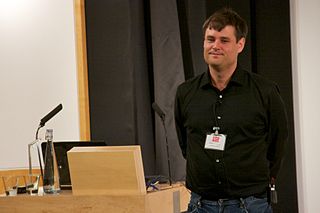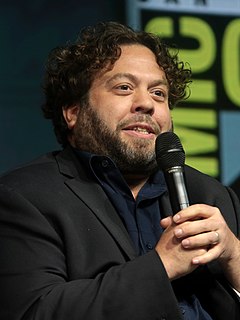A Quote by Mehmet Murat Ildan
The line between the white-science and the black-science is very narrow. You can open roads or you can kill people by the same dynamite!
Related Quotes
Literary science fiction is a very, very narrow band of the publishing business. I love science fiction in more of a pop-culture sense. And by the way, the line between science fiction and reality has blurred a lot in my life doing deep ocean expeditions and working on actual space projects and so on. So I tend to be more fascinated by the reality of the science-fiction world in which we live.
You are all fundamentalists with a top dressing of science. That is why you are the stupidest of conservatives and reactionists in politics and the most bigoted of obstructionists in science itself. When it comes to getting a move on you are all of the same opinion: stop it, flog it, hang it, dynamite it, stamp it out.
No science is immune to the infection of politics and the corruption of power. ... The time has come to consider how we might bring about a separation, as complete as possible, between Science and Government in all countries. I call this the disestablishment of science, in the same sense in which the churches have been disestablished and have become independent of the state.
The people of America are red, white, black, yellow, and all the shades in between. Their eyes are blue, black, and brown, and all the shades in between. Their hair is straight, curly, kinky, and most of it in between. They are tall and short, slim and fat, athletic and anaemic, and most of them in between. They are the different peoples of the world becoming more and more the "in between." They are a people creating a new bridge of mankind in between the past of narrow nationalistic chauvinism and the horizon of a new mankind--a people of the world. Their face is the face of the future.
Perhaps the problem is the seeming need that people have of making black-and-white cutoffs when it comes to certain mysterious phenomena, such as life and consciousness. People seem to want there to be an absolute threshold between the living and the nonliving, and between the thinking and the "merely mechanical," ... But the onward march of science seems to force us ever more clearly into accepting intermediate levels of such properties.
We look for medicine to be an orderly field of knowledge and procedure. But it is not. It is an imperfect science, an enterprise of constantly changing knowledge, uncertain information, fallible individuals, and at the same time lives on the line. There is science in what we do, yes, but also habit, intuition, and sometimes plain old guessing. The gap between what we know and what we aim for persists. And this gap complicates everything we do.
I often compare open source to science. To where science took this whole notion of developing ideas in the open and improving on other peoples' ideas and making it into what science is today and the incredible advances that we have had. And I compare that to witchcraft and alchemy, where openness was something you didn't do.




































